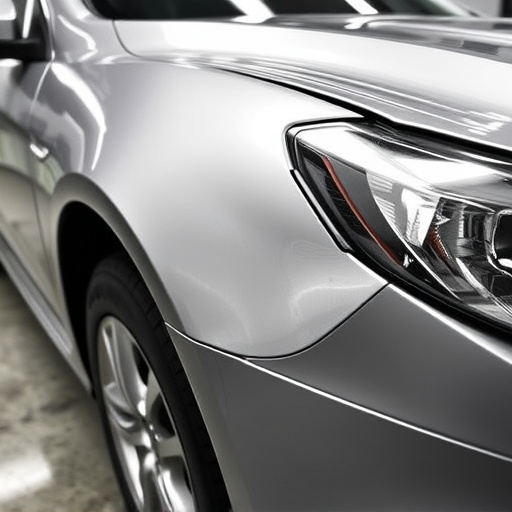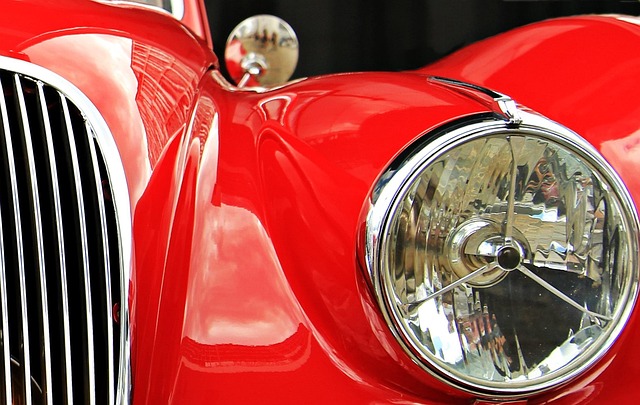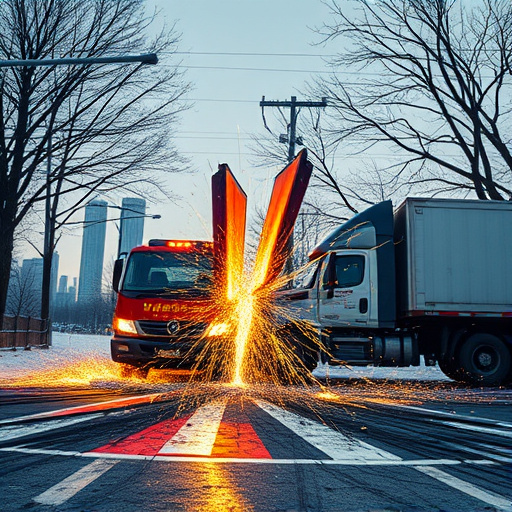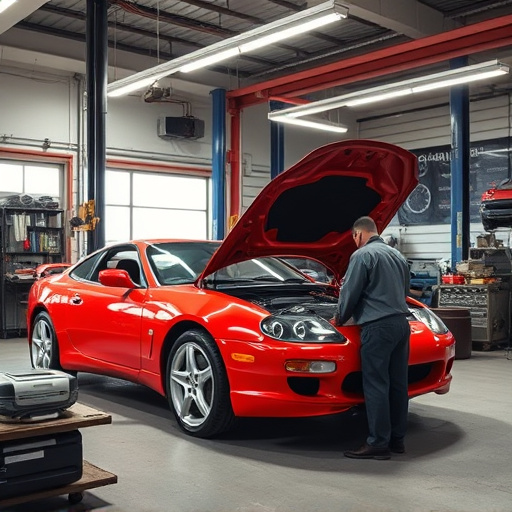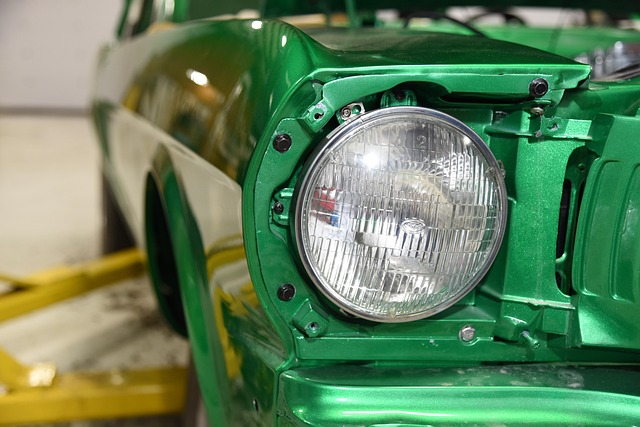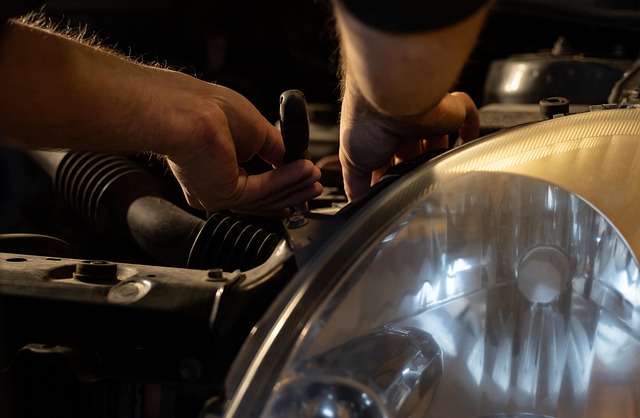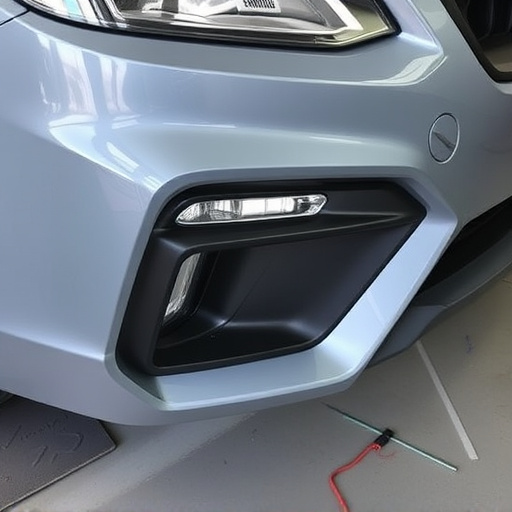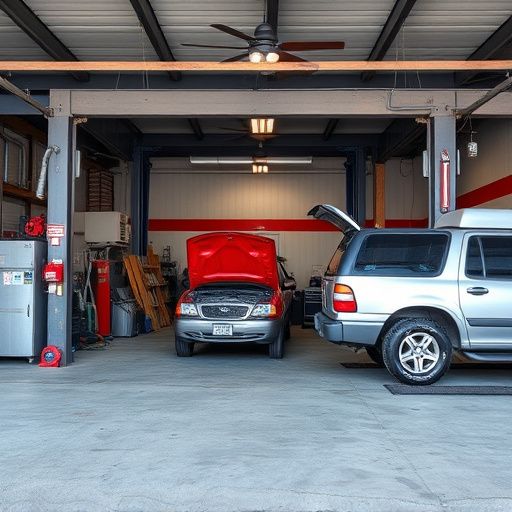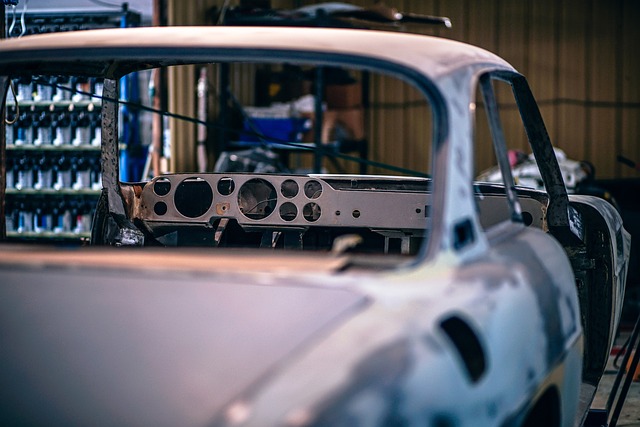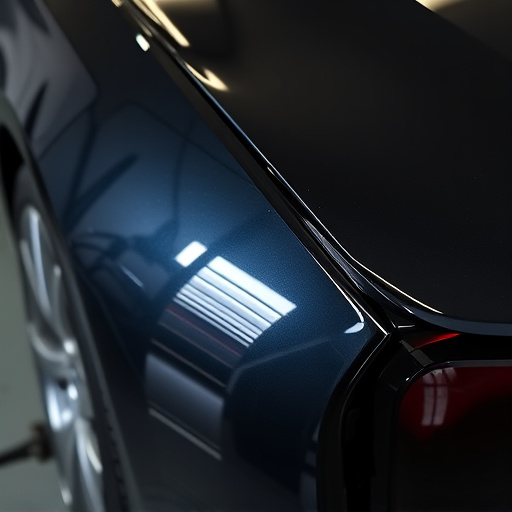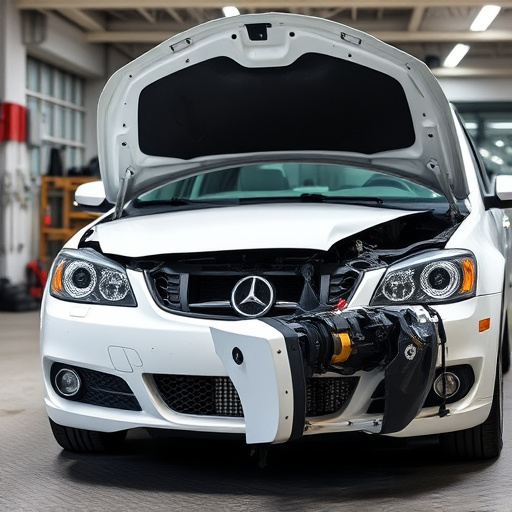Mercedes impact sensors are crucial for passenger safety, accurately detecting collision force and angle to deploy airbags. Over time, these sensors can drift out of calibration, posing risks. Regular calibration using specialized equipment ensures accurate data transmission, enabling the airbag system to respond appropriately during accidents, enhancing vehicle and occupant safety. Post-airbag deployment, meticulous recalibration is required to address sensor shifts, ensuring the vehicle retains its original safety specifications through improved data accuracy and enhanced airbag performance in future accidents.
Mercedes vehicles are renowned for their advanced safety features, including the sophisticated impact sensors that trigger airbags. However, these sensors require periodic calibration, especially after an airbag system deployment. This is crucial as a misaligned sensor can lead to inadequate or delayed responses in future accidents. Understanding and maintaining proper Mercedes impact sensor calibration ensures optimal passenger protection, providing peace of mind for every journey.
- Understanding Mercedes Impact Sensor Calibration
- When is Calibration After Airbag Deployment Necessary?
- The Process and Benefits of Impact Sensor Recalibration
Understanding Mercedes Impact Sensor Calibration

Mercedes impact sensors play a critical role in ensuring the safety of its occupants during a collision. These sensors are designed to detect the force and angle of an impact, enabling the vehicle’s airbag system to deploy accurately and swiftly. However, over time, these sensors can drift out of calibration, leading to potential safety risks. This is where Mercedes impact sensor calibration becomes essential.
Calibrating these sensors is a precise process that requires specialized equipment and expertise. It involves adjusting the sensor’s readings to match the vehicle’s specific performance characteristics. Regular calibration ensures accurate data transmission, allowing the airbag system to respond appropriately in the event of an accident, such as a car dent repair or automotive collision repair. By maintaining proper impact sensor calibration, Mercedes owners can have peace of mind, knowing their vehicle’s safety systems are operating at peak efficiency.
When is Calibration After Airbag Deployment Necessary?
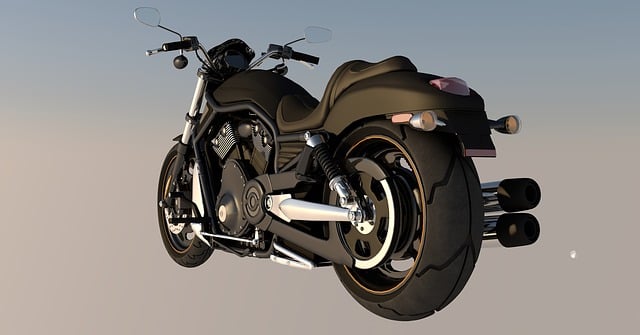
After an airbag system deployment, especially in a Mercedes vehicle, it’s crucial to consider the impact on the car’s sensors. The airbag mechanism triggers complex reactions, and the subsequent crash or impact can cause sensor shifts. These sensors are responsible for detecting collision events accurately, which is vital for both passenger safety and the proper functioning of active safety systems. Therefore, Mercedes impact sensor calibration becomes necessary to ensure these sensors remain precise and reliable post-airbag deployment.
While regular maintenance and calibrations are essential for optimal sensor performance, airbag deployment requires a more meticulous recalibration. Even minor adjustments can significantly impact the car’s ability to respond appropriately during future collisions. This is where professionals step in, offering services like paintless dent repair and car bodywork restoration to address any sensor shifts, ensuring the vehicle returns to its original safety specifications.
The Process and Benefits of Impact Sensor Recalibration
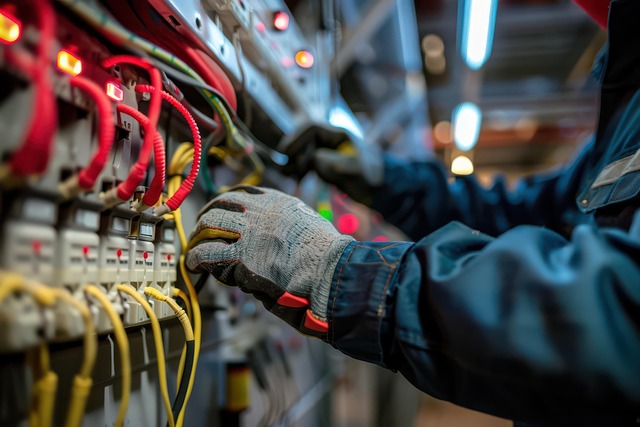
The process of Mercedes impact sensor recalibration is a critical step in ensuring the safety and reliability of the vehicle’s airbag system. After an airbag deployment, the sensors that detect collision impact need to be reevaluated to maintain their accuracy. This involves advanced diagnostic tools that measure and analyze the sensor’s response, allowing technicians to make precise adjustments. The benefits are significant; recalibrated sensors provide more accurate data, which can lead to improved airbag performance during future accidents, potentially saving lives and reducing injuries.
Regular impact sensor calibration is an essential part of vehicle repair services, especially for luxury cars like Mercedes. It’s a proactive measure that falls under auto maintenance routines, ensuring the safety features work as intended when every second counts. By keeping these sensors in top condition, auto repair services can contribute to the overall safety of the vehicle and peace of mind for its owners.
Mercedes impact sensor calibration is a critical process that ensures the safety and reliability of the vehicle’s airbag system. After an airbag deployment, recalibration is often necessary to maintain optimal performance, as the sensors can be disrupted by high-impact events. Regular calibration checks are beneficial for all Mercedes owners, ensuring their airbags respond accurately in future accidents, ultimately enhancing passenger safety.
